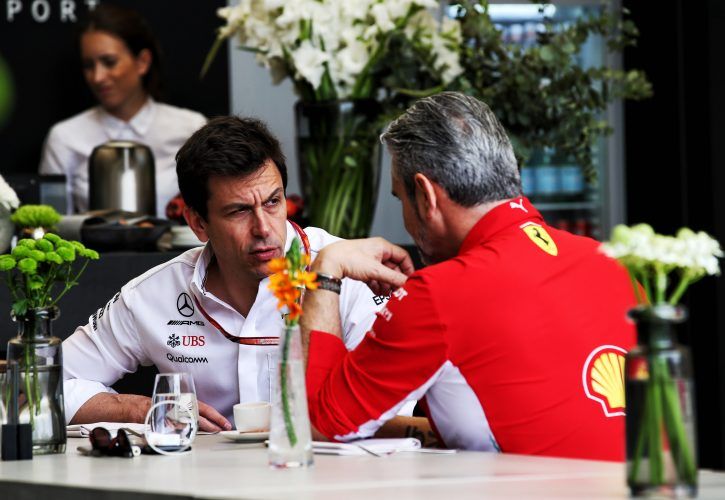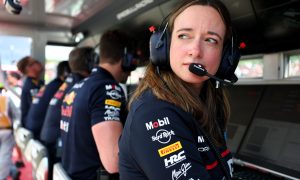
Liberty Media presented to F1 teams Friday in Bahrain a series of 'strategic initiatives' from which the sport will derive its 2021 regulations.
In a 90-minute meeting in Sakhir, The Formula One Group's CEO Chase Carey and F1 sporting manager Ross Brawn delivered the commercial rights vision for the future, most of which was drafted in last year's proposal.
The blueprint addresses cost cap measures, revenue distribution, power units, governance and overall sporting and technical regulations changes.
Liberty is calling for a cheaper, louder and simpler engine from 2021, but one which will remain road relevant and prove attractive to new manufacturers from an engineering and cost perspective.
On the subject of cost, F1 vows to focus on how teams spend their budget rather than how much money shall be spent. A $150 million budget cap is rumored to be in the cards to limit teams' investments, with no details on how the restrictions would be controlled. If true, that new reduced level of spending - which does not include driver salaries and marketing expenses - will require a massive amount of "downsizing" on the part of F1's $400 million-budget teams, such as Mercedes and Ferrari.
Standardized elements - the root of Ferrari's opposition to Liberty's 2021 vision - shall be incorporated but car differentiation must remain a core value.
New revenue distribution criteria "must be more balanced", based on meritocracy of the current performance and reward success for the teams and the Commercial Rights Holder. Revenue support will be provided to both cars and engine suppliers.
According to Friday's reports, historical bonus payouts to Ferrari, Mercedes, McLaren and Red Bull shall be maintained, but the Scuderia's bonus payments could be reduced, a shortfall likely to further frustrate Sergio Marchionne.
Governance is expected to be simplified, with a streamline structure between the teams, the FIA and Formula One.

Finally, with regard to the future sporting and technical rules and regulations, FI will aim to make cars more "raceable to increase overtaking opportunities". Engineering technology must however remain a cornerstone but driver’s skill must be the predominant factor in the performance of the car.
The cars must and will remain different from each other and maintain performance differentiators like aerodynamics, suspensions and PU performance. However, areas not relevant to fans need to be standardised, according to F1.
Teams will likely now digest the list of "strategic initiatives" before providing feedback to F1's management.
"It was a more a meeting to pass the information and to pass the views onto the teams,” Brawn told Motorsport.com.
"The teams need to digest it now, and then the discussion proper will start. It was a straightforward meeting with no major controversies."
Gallery: The beautiful wives and girlfriends of F1 drivers
Keep up to date with all the F1 news via Facebook and Twitter







